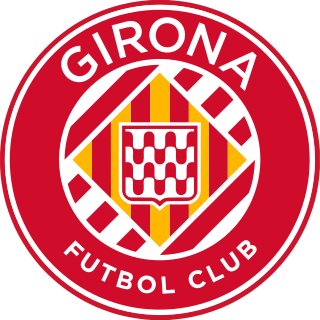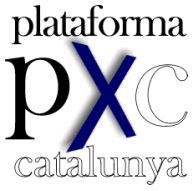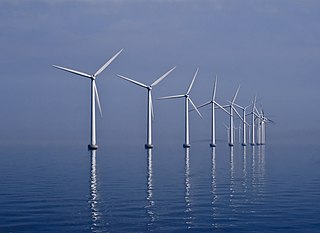
Iberdrola, S.A. is a Spanish multinational electric utility company based in Bilbao, Spain. It has around 40,000 employees and serves around 30 million customers.

Girona Futbol Club, S.A.D. is a Spanish professional football club based in Girona, Catalonia. Founded on 23 July 1930, the team plays in La Liga, to which they gained promotion in the 2022 Segunda División play-offs.

Spain is one of the countries with the largest wind power capacity installed, with over 27 GW in 2020. In 2013, it had become the first country in the world to have wind power as its main source of energy.

Acciona Energía, a subsidiary of Acciona based in Madrid, is involved in the energy industry: the development and structuring of projects, engineering, construction, supply, operations, maintenance, asset management and management and sales of clean energy.
The electricity sector in Argentina constitutes the third largest power market in Latin America. It relies mostly on thermal generation and hydropower generation (36%). The prevailing natural gas-fired thermal generation is at risk due to the uncertainty about future gas supply.
As required by the Constitution, the electricity sector is federally owned, with the Federal Electricity Commission essentially controlling the whole sector; private participation and foreign companies are allowed to operate in the country only through specific service contracts. Attempts to reform the sector have traditionally faced strong political and social resistance in Mexico, where subsidies for residential consumers absorb substantial fiscal resources.

Renewable energy in Spain, comprising bioenergy, wind, solar, and hydro sources, accounted for 15.0% of the Total Energy Supply (TES) in 2019. Oil was the largest contributor at 42.4% of the TES, followed by gas, which made up 25.4%.
The Extresol Solar Power Station is a 150 megawatt (MW) commercial concentrated solar thermal power plant, located in Torre de Miguel Sesmero in the province of Badajoz, Extremadura, Spain.
Ecopower is a Belgian cooperative founded in 1991, financing renewable energy projects in Flanders.

Platform for Catalonia was a far-right political party rooted in Catalonia, Spain, which centred its political agenda around controlling immigration and was opposed to Catalan independence. It was strongly anti-Islamic and was widely considered a racist, xenophobic far-right political force. Its leader was Josep Anglada, town councillor in Vic.
Renewable energy in Chile is classified as Conventional and Non Conventional Renewable Energy (NCRE), and includes biomass, hydro-power, geothermal, wind and solar among other energy sources. Usually, when referring to Renewable Energy in Chile, it will be the Non Conventional kind.

Renewable energy in Costa Rica supplied about 98.1% of the electrical energy output for the entire nation in 2016. Fossil fuel energy consumption in Costa Rica was 49.48 as of 2014, with demand for oil increasing in recent years. In 2014, 99% of its electrical energy was derived from renewable energy sources, about 80% of which from hydroelectric power. For the first 75 days of 2015, 100% of its electrical energy was derived from renewable energy sources and in mid 2016 that feat was accomplished for 110 consecutive days despite suboptimal weather conditions.
Caja de Ingenieros is a cooperative society for the savings and credit that has more than 145,000 members and developed a model of personal, commercial, institutional and business banking in the Spanish region focusing on the service for professionals, namely engineers and other professions.
Girona Futbol Club "B" is a Spanish football team based in Girona, in the autonomous community of Catalonia. The reserve team of Girona FC was founded in 2011, and plays in Tercera Federación – Group 5, holding home matches at Camp de Futbol municipal de Riudarenes.

The National Front of Catalonia is a Catalan far-right and pro-independence political party, presented in 2013. It had a local councilor in Ripoll between 2019 and 2020. Their main ideological principles are Catalan nationalism and opposition to irregular immigration.

CAMMESA is an Argentinian company which operates the wholesale energy market of the country.

A renewable energy cooperative is a decentralized, non-governmental initiative of local communities and citizens to promote the production and consumption of renewable energy. It is formed by a group of community members that share a common long-term goal for a sustainable future of energy and work to advance the transition through active citizenship involvement. In this way, the citizens are prosumers: they act as both producers and consumers in an attempt to democratize energy supplies by shifting away from relying on large companies.

Diego Gonzalo Pardow Lorenzo is a Chilean lawyer and politician, a member of the Social Convergence (CS) party. Since September 6, 2022, he has served as the Minister of Energy in his country, under the government of President Gabriel Boric.
The Cooperativa Hidroeléctrica de la Montaña is the first electric energy cooperative in Puerto Rico. Their purpose is to generate and distribute cost effective and resilient energy from renewable sources for the communities and businesses from the Adjuntas, Jayuya, Lares, Maricao and Utuado municipalities. The efforts of the Cooperativa Hidroeléctrica de la Montaña are directed to guarantee cost effective, clean and resilient energy to the residents of these communities, using a democratic model.











